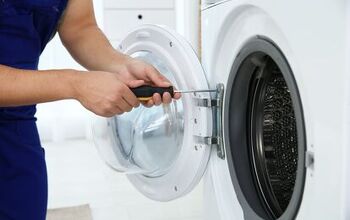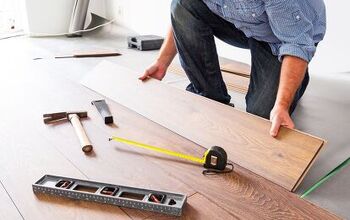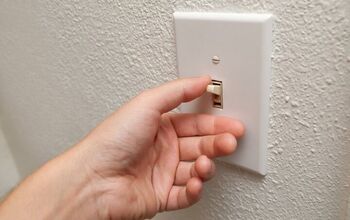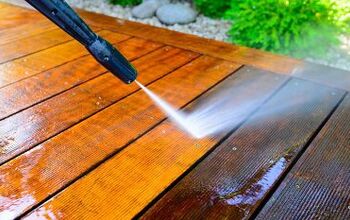How To Fix A Leaky Shower Without Removing Tiles

A leaking shower is never good news. More often than not, a leaking shower is a dead giveaway that you are about to have to spend a lot of money on your home. That is, if fixing your leaking shower entails removing tiles.
Removing shower tiles is form of re-waterproofing that can be quite costly, destructive, and labor intensive. Because of that, many clever builder-owners wonder how they could fix their leaking showers without removing tiles.
Carefully remove the silicone sealant between tiles. Clean the space between the tiles to make sure there is no soap scum or excess grout and make sure the shower is fully dry. Once you have done that, you can apply a water sealant solution, such as Shower Plug, between the tiles to waterproof them.
Let’s get into how you can fix a leaking shower without removing the tiles.
Do You Need to Hire a Plumber?
Get free, zero-commitment quotes from pro contractors near you.

What Causes A Shower To Leak?
Most commonly, showers leak because the grout between tiles eventually becomes worn down. Besides weakened grout, there are several other causes for a leaking shower, including:
- The caulk is cracking
- Shower head is flawed, continually leaking water
- The liner under the tile is damaged
- No grout was used in construction at all
If it is a matter of caulk cracking or grout going bad, those problems can be prevented by re-caulking or grouting your tiles every 10-15 years maximum. However, if an inspection reveals a leak or you notice it yourself, you will need to reapply caulk or grout as soon as possible.
How To Identify A Leaking Shower
Every once in a while, inspect your tiles, and more importantly, inspect the ceiling of the room beneath your shower, if there is one. You will notice water damage on one the ceiling of a room beneath a leaking shower, typically in the form of a dark, wet spot.
Not all showers sit above other rooms, however, so instead, look for mold in the bathroom. Mold and mildew love nothing more than a leaking shower, and their presence is a strong indicator that your shower has a leak.
Another clear indicator that your shower is leaking is if the wallpaper or paint in the room is warped or peeling. The quicker you act, the less of a problem you’ll have on your hands with a leaking shower.
Fix Your Leaking Shower Without Removing Tiles
In most cases, the way to fix your leaking shower without removing tiles is to eliminate damaged grout, treat the tiles, and apply new grout. This method of fixing a leaky shower is incredibly useful because damaged grout and sealant is a common usually behind the leak.
Step 1: Remove Grout Or Silicone
Remove any grout or silicone between the tiles that is moldy, weakened, or coming off. To make the grout come out easier, douse the surface of the tiles with warm water. Use wire wool to remove the silicone or grout gently.
Clean the space between the tiles after removing old grout and silicone. When all of the bad grout or silicone is gone, dry the tiles with a towel. Before you can add new grout, leave the shower to dry for 12-24 hours.
Step 2: Re-Grout The Tiles
After 12-24 hours of dry time, you can now re-apply grout. You have several options for making the tiles more water resistant this time around. One great option is to mix your grout with an additive, such as AquaTight, as opposed to water to make the grout stronger.
Or another great option is applying grout on its own, followed by 2-3 coats of a grout sealer, such as Stone Tech. Either method works well for reducing risk of leaks, but has slight variations in how it is done.
Option A: Grout Additive
Grout additives can be mixed with grout instead of water to increase the water resistance of the grout. Just 72 ounces of a grout additive, such as AquaTight, can be used to strengthen 25 pounds of grout. You simply use the additive instead of water when mixing grout and use a grout float to apply it.
The dry time is typically 18-20 hours for grout mixed with additives. Typically, a 72 ounce bottle of grout additive can cost $25-$40. Many builders and owners like additives because they can reduce the need for a sealer, if done well.
Option B: Grout Sealer
Grout sealers, such as Stone Tech, are also excellent ways to fix a leaking shower without removing tiles. Let’s say that your grout is cracking and in horrible shape, so you decide to re-grout it. After you re-grout your tiles, apply a grout sealer to them.
Apply one coat of grout sealer to all of the grout between the tiles using a brush. The first coat will dry within 10-15 minutes, and then can brush on a second coat. Be careful to not get any grout sealer on the tiles themselves. 1 gallon of grout sealer costs $50-$60 on average.
Step 3: Look For Other Sources Of Leaks
Once your tile is re-grouted or sealed, and has fully dried and cured within 1 day, look for other sources of leaking. If fixing the grouts and re-sealing them did not fix your leaking shower, it could indicate more severe problems. More often than not, a batch of new grout or sealant should be enough to fix the shower without removing tiles.
However, if the leaking persists and your shower drain begins to overflow, contact a plumber. It could be a matter of the shower base which is best handled by plumbers. The same can be said about shower drain issues, which should also be done by a plumber and may not even require tile removal.
How Much Does It Cost To Have Leaky Shower Fixed By A Plumber?
It can cost between $150 and $450 for a plumber to fix your leaky shower. Quick visits involving grouting or a quick drain fix average $150-$350. Fixing a leaky shower on your own without hiring a plumber only costs $40-$60.
If you decide to hire a plumber then the $150 to $450 includes the labor fees as well as the materials involved and any equipment that they will need. Furthermore, you could expect a professional and thorough job for this price. So, even though it’s more expensive than doing it yourself, you’re getting your money’s worth.
How To Prevent A Leaking Shower
To avoid the heartache of dealing with a leaking shower, there are few things that you can do to avoid it al together. Here are some of the best ways to avoid having a leaking shower in the first place:
- Choose an acrylic shower: acrylic showers rarely experience leaks or require maintenance
- Install a waterproof membrane
- Have grout re-applied within 10-15 years or less
- Waterproofing agents, like Shower Plug or other solutions
When building a home or renovating, acrylic showers are the top choice if you want to experience as few leaks as possible. If acrylic is not your style, just be sure to install a waterproof membrane beneath the tiles of your tub or shower.
Pay attention to the grout, and every 10-15 years, you should have it touched up either professionally or by yourself. It also doesn’t hurt to use waterproofing agents designed for showers specifically, such as Shower Plug, or DRYLOK.
Related Questions
Can you waterproof over old tiles?
If your waterproofing job has failed then you will need to remove all of the tiles in order to begin the tiling and waterproofing process all over again from the very beginning.
You can waterproof new tiles that are over existing tiles but only if the older tiles are in great condition and still firmly attached to the substrate.
How can I cover bathroom tiles without removing them?
In order to cover bathroom tiles without removing them, you will need to use tile paint in order to cover the wall tiles. Something else that you could do is use tile paint to cover up old bathrooms and kitchen wall tiles.
The tile paint is able to be applied to any type of tile in order to give them a nice clean look. However, even though painting tiles sounds easy, it’s not!
Why does my shower drip after I turn it off?
When you turn off the water the gravity will pull your diverter back and the water that is remaining or sitting in the pipe and pulled up to the showerhead falls back out of the faucet. Eventually, the diverter can get jammed with soap scum or water deposits which will make it hard to move on its own.
Do You Need to Hire a Plumber?
Get free, zero-commitment quotes from pro contractors near you.

What Did We Learn?
You can fix a leaking shower without removing the tiles on your own. All that you need to do is carefully remove any unhealthy grout or silicone, and re-grout the area. Whether you use grout mixed with an additive, or simply go over your fresh grout with a sealer afterwards, it will fix your leaking shower.
If you’re not comfortable doing this on your own then it would be a great idea to hire a professional. A professional will have all the tools and resources necessary to complete this job for you.

Ossiana Tepfenhart is an expert writer, focusing on interior design and general home tips. Writing is her life, and it's what she does best. Her interests include art and real estate investments.
More by Ossiana Tepfenhart



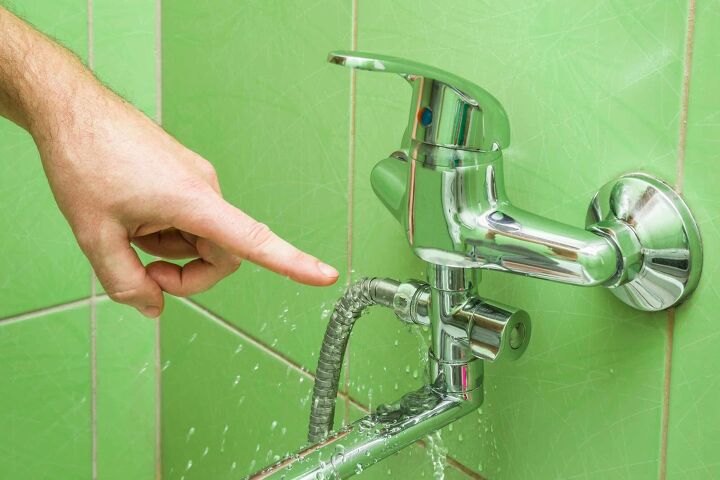







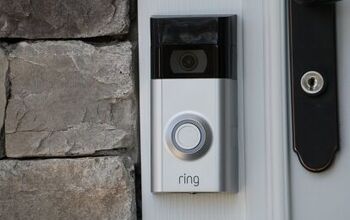
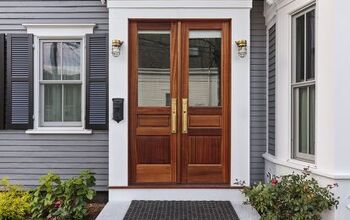

![10 Best Zero Turn Mowers – [2022 Reviews & Ultimate Buyer's Guide]](https://cdn-fastly.upgradedhome.com/media/2023/07/31/9070522/10-best-zero-turn-mowers-2022-reviews-ultimate-buyer-s-guide.jpg?size=350x220)


